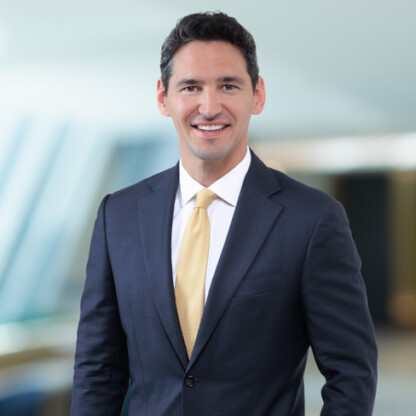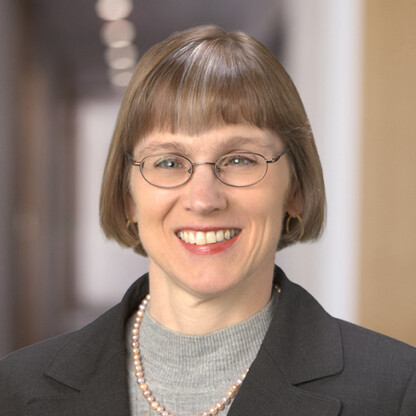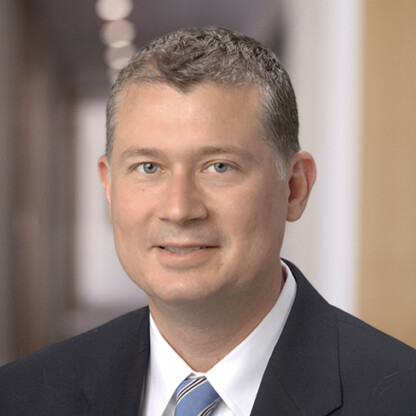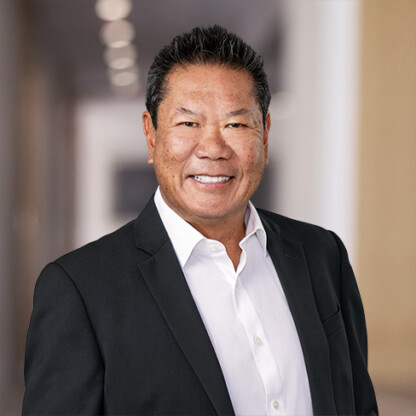Introduction
This month, the Senate Judiciary Committee held three hearings on “The State of Patent Eligibility in America.” Many witnesses with prominent roles in the patent field testified in favor of legislative action to rein in recent Supreme Court decisions, but others supported a more cautious approach, and some saw no problem with the status quo. The hearings followed the draft bipartisan, bicameral bill to revise 35 U.S.C. § 101 and § 112(f), introduced in May by Sens. Thom Tillis (R-NC) and Chris Coons (D-DE) and Reps. Doug Collins (R-GA-9), Hank Johnson (D-GA-4), and Steve Stivers (R-OH-15). You can read the draft legislation, though it likely will be refined in view of the hearing testimony.
Before continuing on to read Foley’s full Senate hearings report below, view this brief video introduction for additional author commentary:
To download a PDF copy of this report for the purposes of printing or sharing with a colleague, please click here.
Hearing Summary
Testimony in Favor of Patent Reform
Witnesses in favor of patent reform included the Honorable Paul R. Michel, former chief judge of the U.S. Court of Appeals for the Federal Circuit, and several former leaders of the USPTO, including the Honorable Q. Todd Dickinson and the Honorable David J. Kappos, both former under secretaries of commerce for intellectual property and directors of the USPTO. These witnesses testified that the unpredictability of court decisions on patent eligibility have left many believing that patent protection is unreliable and unable to incentivize sufficient investments in innovation.
Representatives from the life sciences industry and research universities testified in favor of reform because of the need for patent reliability in order to justify expensive research and development. These witnesses included Hans Sauer, deputy general counsel for intellectual property for the Biotechnology Innovation Organization; Natalie Derzko, of counsel at Covington & Burlington LLP, appearing on behalf of the Pharmaceutical Research and Manufacturers of America; Rick Brandon, associate general counsel for the University of Michigan, appearing on behalf of the Association of American Universities and the Association of University Technology Managers; and many others.
Witnesses representing companies with large patent portfolios also testified in favor of reform, including Henry Hadad, president of the Intellectual Property Owners Association; Manny Schecter, chief patent counsel at IBM; Byron Holz, senior intellectual property rights licensing counsel at Nokia; and many others.
Dickinson testified that concerns that reform would empower “patent trolls” are unfounded because trolls can be “adequately dealt with by various forces other than changing the patent laws, such as state attorneys general, who brought consumer actions, and appropriately forced settlements with the genuine bad actors relying on often newly enacted state unfair competition laws to deal with this fairly contained actual problem.”
The program and testimony from the first day of hearings—which included witnesses with diverse viewpoints—can be found here.
Testimony Against Patent Reform
Kate Ruane, senior legislative counsel for the American Civil Liberties Union—the force behind the Myriad decision—strongly opposed the draft bill. Ruane warned that “[t]he Tillis-Coons framework’s expansion of patent eligibility would also trigger constitutional questions,” explaining that “[t]he framework would permit government-sanctioned monopolies to private parties over fields of knowledge, limiting information sharing and free experimentation, raising serious concerns about whether the patent system would be blocking, rather than promoting, progress.”
Jeffrey Francer, general counsel of the Association for Accessible Medicines, also opposed any changes that would broaden patent eligibility. Francer argued that patents increase health care costs, stating that “[t]he proposed revisions … would incentivize monopolistic bad actors, deny patients access to lifesaving treatments and diagnostics, and reverse progress this committee has made to lower drug prices for Americans.” According to Francer, the draft bill would promote patent thickets, stifle innovation, and undermine congressional efforts to control prescription drug costs. The Association for Accessible Medicines is a trade association for manufacturers and distributors of FDA-approved generic and biosimilar prescription medicines.
Some witnesses representing the software sector opposed the draft bill.
Chris Mohr, vice president for intellectual property and general counsel for the Software and Information Industry Association, explained that the Supreme Court’s Alice framework is working for its members. According to Mohr, under Alice, “non-technological patents” can be invalidated at the motion to dismiss stage of litigation, while “important patents” on “true technical innovations” still can be enforced.
Stephanie Martz, senior vice president and general counsel of the National Retail Federation, testifying on behalf of the group United for Patent Reform, credited Alice with reining in “patent troll” litigation, and warned that the proposed bill “would reopen the floodgates for abusive patent litigation by non-practicing entities … and discourage job creation without incentivizing innovation.” According to Martz, United for Patent Reform is “a coalition of diverse American businesses” whose members range “from Main Street retail shops, REALTORS®, hotels, grocers, convenience stores and restaurants to national construction companies, automobile manufacturers, and technology businesses.”
These witnesses testified that the draft legislation is too sweeping a change in light of the industries that are thriving under the current standards. They also expressed concerns that the bill changes definitions that have guided the U.S. patent system for centuries.
Other testimony regarding the overbreadth of the legislation came from William Jenks, principal at Jenks IP Law, speaking on behalf of the Internet Association. He testified that the current Alice/Mayo test is applied primarily in cases involving computer technology, and that the test works in that field. He also noted that the Supreme Court has recently called for the views of the Solicitor General in a case regarding life sciences.
The program and testimony from the second day of hearings—which included witnesses with diverse viewpoints—can be found here.
Differing Views on 112(f)
The apparent goal of the proposed changes to 112(f) is to ensure that overly broad, functional claim terms are interpreted more narrowly, to avoid concerns over preemption that underlie the Supreme Court’s exceptions to patent eligibility. For example, referencing the Morse telegraph case, Robert A. Armitage, a consultant on IP strategy and policy, testified that, “You can’t describe every way of using characters or communicating intelligible information at a distance with electromagnetism in a patent that only discloses the telegraph.” Other witnesses expressed concerns about unintended consequences that might arise from judicial interpretations of the proposed 112(f) amendments. For example, Laurie Self, senior vice president and counsel at Qualcomm, testified that it “could allow our lower competitors to copy our technology and avoid infringement by making small insubstantial changes to the embodiments described in the specification.”
Differing Views on Diagnostics
Witnesses disagreed as to whether any language prohibiting patents on “natural phenomena” would reach diagnostic methods, and whether diagnostic methods should be eligible for patenting.
Michael Rosen, adjunct fellow at the American Enterprise Institute, testified that “only those claims that would effectively preempt every use of an abstract idea, natural law, or natural phenomenon should be ineligible.” In his view, “purely diagnostic claims with no treatment step at all would be ineligible, as would software claims that recite only the most generic idea with no hint of how it might be implemented.”
Charles Duan, director of technology and innovation and a senior fellow at the R Street Institute, testified that the draft legislation would go too far in permitting the patenting of laws of nature. “The draft legislation will inhibit scientific research by locking up with patents the laws of nature that are the foundation of scientific progress. It will balkanize ownership over natural resources such as the human genome, forcing scientists to overcome massive legal complexities before they can even begin basic research,” he said.
Joshua Sarnoff, professor at DePaul University College of Law, testified that subjecting discoveries of science, nature, and ideas to patent eligibility is “religiously sinful against God, according to historic Christian theology, by treating God’s work that should be free for all to use as if it were a human invention, and by making property of and trafficking in the sacred world of nature given by God to all for human benefit.”
However, Jeffrey Lefstin, associate academic dean at the University of California Hastings College of the Law, testified that the current requirements have “virtually eliminated patent protection for many new diagnostics and other discovery-based inventions. Beyond discouraging innovation in these fields, restricting patent protection also drives firms to maintain their discoveries as trade secrets, thereby reducing public disclosure that would support further discovery by others.” Peter O’Neill, executive director of Cleveland Clinic Innovations, testified similarly, saying the “work of translating discovery into commercial products requires the patent protection to justify the investment into those discoveries … as exists today, we are not moving forward diagnostic discoveries to translate them into commercial products the way we would do otherwise.”
Jeffrey Birchak, general counsel, vice president of intellectual property, and secretary of Fallbrook Technologies, testifying on behalf of the Innovation Alliance, agreed. “The disparity in patent eligibility between the U.S. and our foreign competitors is problematic for critical emerging technologies and biotech innovations, including 5G, quantum computing, artificial intelligence, and medical diagnostics,” he said. “This undermines U.S. competitiveness and the ability of the U.S. to remain the global leader in innovation.”
The Practical Application Requirement
Several witnesses commented on the draft legislation’s new requirement that an invention must “provide specific and practical utility in any field of technology.” Mark Lemley, Stanford University School of Law professor, testified that “distinguishing between technological and non-technological contributions is actually a pretty good way of weeding out many of the problematic patents while keeping real technological contributions.”
Barbara Fiacco, a partner at Foley Hoag and president-elect of the American Intellectual Property Law Association, testified that this inclusion could “open the door to courts developing new subjective tests to what might be eligible. This could result in new uncertainty in Section 101 law.”
The program and testimony from the third day of hearings—which included witnesses with diverse viewpoints—can be found here.
Areas to Contribute
At the close of the hearings, Sen. Tillis stated that further refinements to the legislation will be made. He highlighted a few issues in particular:
- Refine the utility test so that it’s very clear that true abstractions, natural laws, and natural phenomena do not pass the test.
- Further enhance proposals to amend Section 112 to address potential dangers associated with vague business methods and generic computer-implemented processes.
- Possibly adopt a beefed-up experimental use and research exemption so that basic research isn’t unduly inhibited by any unintended effects.
Legislators also may need to resolve the following issues, which were debated throughout the hearings:
- Is the introduction of the phrase “field of technology” effective? Tillis acknowledged in the second hearing that “Pro-reform witnesses seemed worried that field of technology could be too narrowly interpreted. Anti-reform witnesses had the opposite view; they felt the term wasn’t definite enough. And clearly regardless of which side you’re on, it seems that those term — those terms need better definition or more meat on the bones.”
- Is there a narrower way to address the current problems some have with the system without creating new problems?
Legislative Process
Sen. Tillis emphasized his plans to keep the legislative process moving forward and address the concerns raised in these hearings. He would like to garner consensus around revised language in time to formally introduce the bill after the July 4 recess, which ends on July 8. This draft legislation was written in conjunction with the House of Representatives, which is likely to formally introduce its own bill at the same time.
Following introduction, the bill would be subject to “markup” in both chambers of Congress and further debate and revision. After that process, the bill could be put up for a vote in the relevant House and Senate committees and, if passed, in the full chambers.
Sen. Tillis has promised to keep an open dialogue as Congress continues to work on this legislation. The best opportunities to influence the legislation will be through dialogue with one of the senators or congressmen who authored it before it is formally introduced or with members of the relevant committees before it goes to markup.



